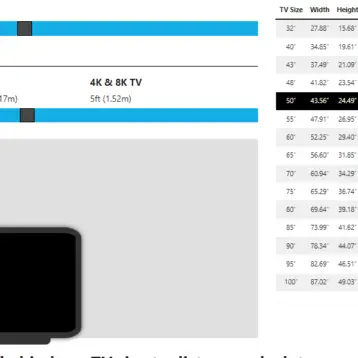In the digital age of the internet, everything revolves around the speed of the connection. Companies and regular internet users need fast internet speeds to do their daily business. However, the problem is that many areas don’t have the means to provide fiber-like internet speeds.
The areas that do have fast internet offer it at a high price. So, how do you get extra internet speed without breaking a budget? The answer is simple – 5G Wi-Fi. Although 5G isn’t accessible globally, its immense benefits are undeniable. Let’s discuss what 5G is and why it is the future of the internet.
5G Wi-Fi explained
5G Wi-Fi is almost the same as your regular Wi-Fi at home. It provides you with the internet connection in two ways:
- Directly through wired connections like fiber or cable.
- Through a wireless service.
5G allows you to use the internet by delivering a fast connection to your router via a direct wireless connection. It needs a 5G tower to provide users with internet access. 5G towers are base stations that wirelessly connect internet users in different locations into a single online network with fixed wireless access.
In other words, 5G Wi-Fi is regular Wi-Fi that requires a 5G hotspot to provide internet users with faster internet speeds. It’s perfect for mobile and stationary internet users who need extra speed and internet access on various devices such as smartphones, laptops, gaming consoles, tablets, desktop computers, etc.
Benefits of 5G internet
Let’s discuss the well-known benefits of using a 5G internet connection.
Ultra-speed
5G can be incredibly fast – more than ten times faster than its predecessor, 4G. It can bring download speeds from 1 Gbps to 10 Gbps. Of course, the speeds can also depend on the type of 5G connection you have. For instance, the low-band spectrum is likely to support a bit slower connection. However, its advantage is the ability to penetrate obstacles. The high-band spectrum does the opposite.
Extremely low latency
Another prominent advantage of 5G is incredibly low latency. 5G networks abide by different network standards, meaning a 5G Wi-Fi connection speed up the things you do online due to low latency.
You can perform everyday tasks much faster like streaming content, playing online games, uploading videos, sharing data, and downloading files.
Fewer bandwidth problems
5G eliminates common bandwidth problems, such as random disconnects, video buffering, traffic congestion, and connection throttling.
Because of that, it’s a perfect solution for connecting bandwidth-demanding devices such as augmented and virtual reality applications and headsets.
Reliable connection
5G delivers reliable internet connection even without the existing internet infrastructure. It can work in areas where there’s no internet connection at all.
That’s why it’s a preferred solution for remote businesses that need a reliable and fast internet connection across different countries.
Cost-efficiency
Since it doesn’t require massive network infrastructure to function, 5G can significantly reduce the cost of delivering fast internet to every corner of the planet while offering advantages to global fixed broadband providers.
Tips to improve your internet quality today
Here are some valuable tips to improve the quality of your internet connection.
Restart your router and modem
In most situations, restarting internet equipment can improve your internet speed. Whether using a router or modem, unplug your equipment, let it rest for 30 seconds, and then plug it back in.
This process allows you to eliminate any glitches and fix connection issues. You can also disconnect your wireless devices by turning off the Wi-Fi for a few seconds. Reconnection can usually improve your internet speed.
Switch Wi-Fi frequency band
The frequency band your router uses can tamper with the quality and speed of your internet connection, depending on the distance from your router.
Since routers operate on 2.4GHz-5Ghz frequency bands, switching between them can fix any temporary interference.
Here are the best use cases for Wi-Fi frequency bands:
- 2.4GHz – security cameras, smart home devices, smart speakers.
- 5GHz – gaming consoles, desktop computers, smartphones, smart TVs.
Use a VPN to avoid ISP connection throttling
ISPs can throttle your internet traffic for many reasons. They usually do it to lift some of the traffic load during peak times to ensure every user receives a fast connection. However, it can also happen according to the type of traffic initiated.
While throttling usually goes unnoticed, it can interfere with streaming services, online gaming experiences, and business use cases such as file transfers and video conferencing.
Thankfully, you can prevent bandwidth throttling with a Virtual Private Network application. VPNs encrypt your traffic information so that your ISP can’t see it. So, they can’t slow down what they can’t monitor. Thus, this workaround stops ISPs from throttling traffic based on its type. Download VPN apps to guard against deliberate attempts to interrupt or slow down your connections.
Conclusion
Although 5G still isn’t available anywhere in the world, it’s a promising technology that could reshape the internet as we know it.
It could lower the cost of delivering fast internet connection, remove unnecessary and expensive infrastructure, solve latency and bandwidth problems, and ensure reliable internet worldwide.
From wireless internet at home to the fastest connections in business and beyond, 5G is the ever-evolving solution to the questionable future of the digital world.









